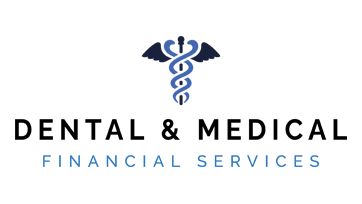
NHS Pay Rise Means Doctors Will Work Fewer Hours Due to ‘Tax Trap’
The recent announcement of a 6% pay-rise for NHS doctors has brought forth both relief and concern across the healthcare industry. While the raise acknowledges the hard work and dedication of medical professionals, it has also triggered a complex tax trap that could result in doctors effectively “paying to work.”
Dental & Medical Financial Services have been assisting doctors with their financial planning for over 30 years. Read on to learn how your finances might be affected from the NHS pay rise.
This does not constitute advice and advice should be sought in all instances before acting on it. The Financial Conduct Authority does not regulate tax advice.
The NHS Pay Rise: A Double-Edged Sword for Doctors
The British Medical Association (BMA) has raised crucial warnings to the Labour party concerning this pay raise, expressing fears that some doctors may choose to reduce their working hours or decline extra shifts, which could further exacerbate the NHS’s already overstretched resources and waiting lists.
The updated pay structure, as part of the government’s acceptance of independent pay review recommendations, means salaries for doctors and dentists have increased retroactively to April. However, the unexpected twist is that as doctors’ incomes rise, so do their tax liabilities, placing many into a financial dilemma where the incentives to work more hours are undermined.
The Impending Tax Trap
Pension and benefits experts have identified that with increased salaries, some doctors will find themselves navigating a perilous financial precipice. Specifically, those earning between £100,000 and £125,140 will face an effective income tax rate of 60%. For an NHS consultant whose pay increases from £108,390 to £114,893, nearly 60% of this rise could vanish due to income tax. Beyond this, many will slip over the so-called “£100,000 childcare cliff edge,” where losing access to childcare benefit can result in a significant drop in disposable income—potentially as much as £14,500 per year.
Faced with such financial pressures, many consultants, especially those who may fall within the £100,000 threshold, are likely to reconsider their work hours or even seek part-time roles. This aversion to taking on additional shifts could severely hinder the government’s promise of increasing medical appointments and meeting patient needs.
A System in Distress
The ramifications of these tax traps extend beyond individual financial choices. The combination of losing personal allowances and childcare benefits effectively reduces the appeal of increased working hours. This is especially concerning for the NHS, which is already battling to maintain a stable workforce amidst growing demand.
In addition, the annual allowance on pension contributions is particularly burdensome for senior staff and high earners. While most individuals can contribute up to £60,000 without incurring a tax charge, this benefit is tapered for those earning over £200,000—a situation that disproportionately affects senior NHS managers and experienced practitioners. In severe cases, this could lead to additional tax liabilities amounting to £22,500.
As doctors weigh these complexities, it is essential to recognise that many are reconsidering not just their working hours but their careers within the NHS altogether—a distressing reality for a health service already on the brink.
Keeping an Eye on the Future
While HM Treasury has emphasised its commitment to restoring the NHS’s operational capacity through pay increases, the proposition that doctors are facing as a result that disincentives doctors from working full hours paints a starkly different picture. Without urgent reform to the tax policies affecting NHS doctors, the risk of losing valuable professionals could hinder the service’s performance crucially.
Comprehensive financial planning has never been more vital for medical professionals. Dental & Medical Financial Services understand the unique challenges faced by doctors and dentists, particularly those involved in the NHS. Our expertise encompasses a nuanced understanding of these tax implications as well as overall financial planning strategies.
Let us help you discover ways to maximise your income while minimising tax liabilities. Contact Dental & Medical Financial Services today to secure your financial future.

Dental & Medical Financial Services
Dental & Medical Financial Services have over 30 years of experience in building and protecting the wealth of medical professionals.
Our expertise covers:
- Financial Planning
- Mortgages & Finance
- Wealth Protection
- Investments, SIPPS & ISAs
- NHS Pension Planning
- Business Financial Protection
- Wills, IHT & Estate Planning
- Tax Planning
- Limited Company Investments
Contact Details
IFA Principal
Darren Scott-Guinness
01403 780 771
